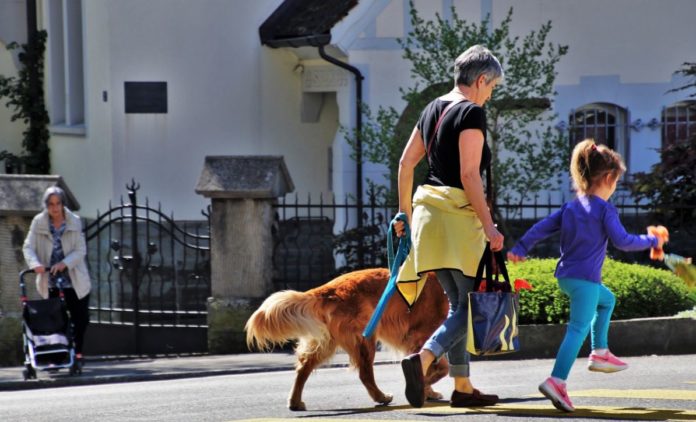Grandmothers played a crucial role in the evolution of humans, according to new evidence from scientists from the universities of Utah and Sydney.
Learn what Grandma hypothesis is and how it relates to our evolutionary history.
Grandmothers were essential to sustain human evolution, says a study prepared by specialists from the University of Utah and Sydney.
According to the results, thanks to them our species developed greater social capacities and longer lives.
“Grandma was the initial step in becoming who we are,” says the study’s lead author, anthropologist Kristen Hawkes. In 1997, Hawkes set out to answer an issue that has haunted anthropologists for decades: the reason for menopause.
Unlike primates, human women reach a stage in life where their menstrual cycle stops and they can no longer conceive. To explain it, the anthropologist proposed the “grandmother hypothesis“, a theory that explains menopause through the evolutionary value that grandmothers had over time.
Grandmothers helped develop “a wide range of social skills that are the basis for the evolution of other distinctively human traits, including bonding in partners, bigger brains, learning new skills, and our tendency to cooperate,” she said.
- Does This Mean We Stopped Being Animal and Started Being Human Due to ‘Copy Paste’ Errors?
- The One Lifestyle Choice That Could Reduce Your Heart Disease Risk By More Than 22%
- Aging: This Is What Happens Inside Your Body Right After Exercise
- Immune-Boosting Drink that Mimics Fasting to Reduce Fat – Scientists ‘Were Surprised’ By New Findings
- Gun Violence in America: What They Don’t Talk About at the Debate
In order to test this hypothesis, Hawkes conducted a study using computer simulations to provide mathematical evidence to prove or disprove it.
The team made up of Hawkes together with the mathematical biologist Peter Kim (University of Sydney) and the anthropologist James Coxworth, (University of Utah), simulated what would happen to the life expectancy of a hypothetical species of primates if the females had menopause and grandmothers existed as part of the social structure, summarizes the Smithsonian magazine.
In the simulation, 1% of the female primate population was programmed to have a genetic predisposition for longer life expectancy and menopause. After 60,000 years of evolution, this hypothetical species of primates developed the ability to live decades after their childbearing age, between 60 and 70 years, with 43% of the females being grandmothers. This exceeds by more than 20 years, in certain cases, the life expectancy of female chimpanzees – between 35 and 45 years old – who usually die when they exceed their fertile age.
But how come grandmothers helped us to live longer?
According to the hypothesis, the grandmothers functioned, on the one hand, as a support for the mother in caring for the baby and the mother who has just given birth.
Thus, the more grandmothers there were, the more likely the children who were born would remain healthy and well cared for. At the same time, as longevity genes are passed on, over the decades people have increased life expectancy.
But why menopause?
As Hawkes explains, if women did not have menopause they would continue to be mothers, rather than occupying the role of grandmother, so there would be no such extra care provided by that place.
Although the theory is not definitive, it is clarified in the study, the research serves as new mathematical evidence that gives it greater scientific support. The work was published in the journal Proceedings of the Royal Society.
